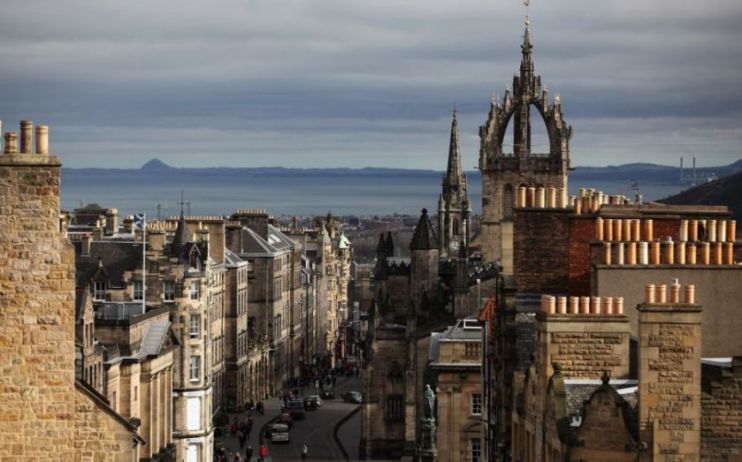Omicron: Risk of hospitalisation two-thirds lower, Scotland study suggests

Early data from Scotland suggests the Omicron variant is less likely to result in hospitalisations compared to the Delta variant, according to the latest research from the University of Edinburgh.
It associates Omicron with a two-thirds reduction in hospitalisation risk, and argues the booster jab offers substantial additional protection against the risk of symptomatic COVID-19 from Omicron.
This outlook was supported by Imperial College London’s newest findings (Report 50) which suggests moderate decrease in hospitalisations compared to the Delta variant.
It calculates a 20 per cent reduction in Omicron hospitalisation rates compared to Delta, and a 40 per cent reduction for hospitalisations lasting longer than a day.
This could even rise to a 70 per cent reduction when it comes to reinfections rather than first-time Omicron cases.
Report 50 said: ” Overall, we find evidence of a reduction in the risk of hospitalisation for Omicron relative to Delta infections, averaging over all cases in the study period.”
This follows encouraging results from South African, revealing people contracting Covid-19 during the country’s current fourth wave were 80 per cent less likely to be hospitalised if they caught the Omicron variant compared to other strains.
The report from the National Institute for Communicable Diseases, suggested Omicron infections are associated with a 70 per cent lower risk of severe disease compared to delta infections in South Africa between April and November.
No new Covid-19 restrictions in England before Christmas
So far, Downing Street has not imposed new lockdown measures, despite rumours of a post-Christmas circuit breaker.
Prime Minister Boris Johnson has said Christmas will go ahead without further restrictions, even as devolved administrations in Scotland, Wales and Northern Ireland introduce a raft of new intrusive measures.
While he did not rule out new restrictions after Christmas, England will be spared new social distancing measures over coming days.
Scotland’s first minister Nicola Sturgeon is set to bring in three weeks of social distancing after Christmas, cancelling the annual Hogmanay celebrations for the second year running while Wales is also looking to limit the size of indoor gatherings.
Meanwhile, Northern Ireland is banning nightclubs from Boxing Day.
However, England is holding firm with cabinet ministers waiting for more data about the severity of Omicron and the strength of the link between cases and hospitalisations.
Chancellor Rishi Sunak already been forced to announce a £1bn package for the hospitality sector following the severe economic effects of Plan B restrictions controversially rammed through in the House of Commons earlier this month.
On Wednesday evening, the UK reported more than 106,122 new Covid-19 cases – a record total and the first time official daily cases have reached six figures.
The results bring the weekly total to 643,219, up by 58.9 per cent compared to the previous week.
However, deaths had declined from the previous day’s numbers, while hospitalisations remain barely above 7,000.
There were 140 new fatalities recorded within 28 days of a positive case, down from 172 on Tuesday, according to government data.
The UK government has instead focused on its booster programme, ramping up vaccinations to reduce the spread of the disease – and over 30m people have now had their top-up jab.
The health authorities also announced it would start vaccinating vulnerable children aged five to 11 against Covid-19 after the medicine regulators approved the use of a lower dose of the Pfizer-BioNTech shot for a younger age group.